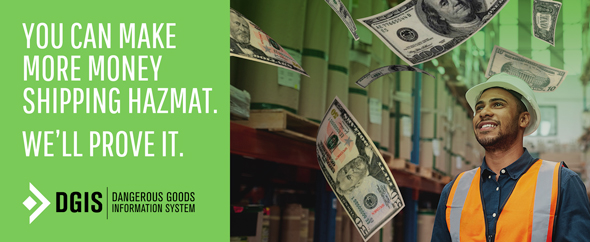

Week of February 7, 2022
Linking supply chain news with dangerous goods compliance
The global electric vehicle (EV) market presents tremendous growth opportunities for automakers, distributors and the companies that supply and serve the auto industry. It also brings a supply chain challenges for everyone involved.
Let’s examine some recent industry news.
SUPPLY CHAIN NEWS
- Parts and Service Providers, like Bridgestone, Prep for Electric Vehicles: Switching to hybrids and electric vehicles means changes for every aspect of the automotive economy, like auto service and parts, and how we get our vehicles serviced.
- Electric Cars Sold in Record Numbers Globally in 2021: Nearly 6.5 million plug-in electric vehicles were sold across last year, over 900k of them in December
- Electric Vehicle Fires are Rare, but Hard to Fight — Here’s Why: Electric vehicles comprise a growing new category for automakers, but the transition to electric transportation brings a new challenge: vehicles with lithium-ion batteries can be especially dangerous when they catch fire.
- California has No Idea What it’s Going to do With Millions of Old EV Batteries: California Governor Gavin Newsom announced a $10 billion proposal to transition the state to clean energy and get people driving EVs. But no one seems to know how to handle or dispose of the old batteries.
- Ford Reportedly Plans to Increase EV Spending by up to $20 Billion: Ford Motor Co. is reportedly planning to accelerate its deployment of electric vehicles and could increase investments in EVs by up to $20 billion over the next five to 10 years.
- The Success of the Electric Vehicle Industry and the Future of Transport Electrification: Dramatic improvements in automotive technology and the growth of the EV market will lead to a rise in the development of new technologies and the transition towards a low-carbon global economy.
OUR PERSPECTIVE
- The logistics challenges of the EV market are real. The EV market continues to grow and change the automotive industry. It also brings with it new logistics challenges for all parties involved. Electric vehicles run on large format lithium-ion batteries, which are fully regulated hazmat and come with complex hazmat shipping regulations, and adds another level of complexity and risk for companies involved in the manufacturing, sales, distributions, services and transport of EVs.
- Lithium batteries are hazmat for a reason. The fire risk associated with lithium batteries has been a hot topic in recent years, and the same is now true for those found in EVs. Although uncommon, when fires do occur, these large and powerful lithium-ion batteries burn hotter and faster and can even re-ignite long after the fire is initially controlled. This makes transporting lithium batteries, especially damaged, defective or recalled ones, even more challenging and high risk, and why proper training, packaging and understanding of the shipping regulations is so critical.
- More batteries lead to more recalls: The growing EV market has brought with it an increase in recalls of large format lithium-ion batteries. Recalls are especially difficult when they involve large format batteries because they are big and heavy and fully regulated hazmat, so they cannot simply be put into a normal box and crate and shipped like other goods. They also require coordinated activities with various supply chain partners, which is often outside of their normal scope or area of expertise. As a result, there’s a lot that can go wrong when recalling large format batteries if companies don’t have the right processes, expertise and technology in place.
Labelmaster’s Recall Ready Program for large format lithium batteries helps simplify the recall process by providing manufacturers and distributors of large format batteries with a comprehensive reverse logistics solution that includes regulatory guidance, custom packaging, customer service, ecommerce platforms, training and more. To learn more about how Labelmaster can help manage your large format lithium battery recall, visit https://www.labelmaster.com/recallready or call 800-621-5808.
To learn more about Dangerous Goods software or how to establish a safer, more compliant supply chain, visit https://www.labelmaster.com.
Have questions about Dangerous Goods transport? Call the Labelmaster Regulatory Hotline at 1.800.621.5808.

As the industry’s most robust, flexible, and advanced hazmat shipping software, Labelmaster’s DGIS can actually help your operation make more money. DGIS validates shipments and prepares DG declarations so quickly, you can handle more shipments every hour. And more shipments mean more revenue.
Try your own numbers in our calculator to see the added revenue DGIS can generate for you.
